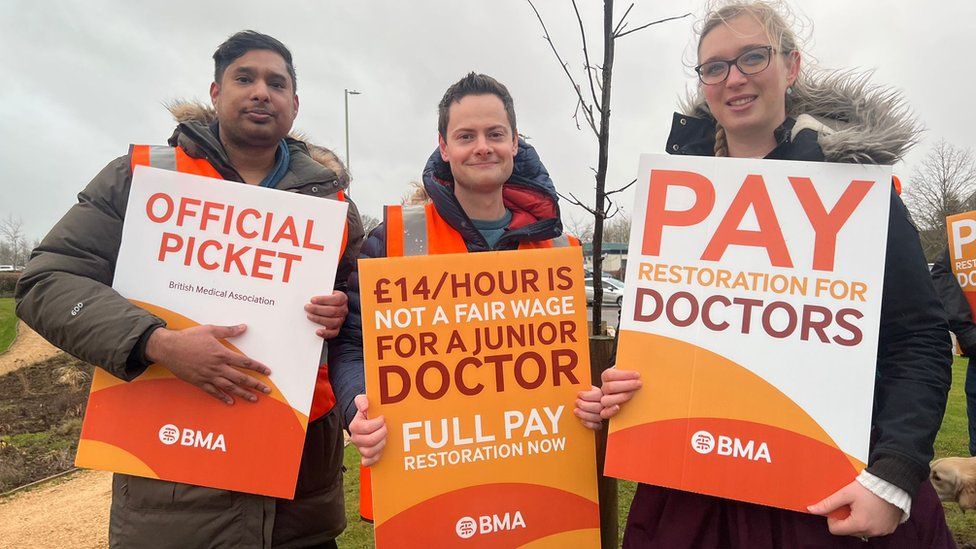Hospital doctors in England, particularly junior doctors below consultant level, have embarked on a six-day strike, marking one of the longest consecutive strikes in the seven-decade history of Britain’s National Health Service (NHS).
This strike is a significant escalation in the ongoing pay dispute between junior doctors and the UK government. The doctors’ industrial action, occurring during a busy period for the NHS, follows a three-day strike held just before Christmas.
The NHS anticipates a significant impact on routine care during this period. The strike was called by the British Medical Association after breakdowns in negotiations with the government over pay issues.
Related News: NAPTAN Calls for Measures Against Disruptive Strikes, Citing Adverse Impact on Students
Junior doctors have been offered a 3% pay rise on top of the average 8.8% increase they received earlier in the year.
However, the union rejected the offer, citing concerns about the uneven distribution of the cash across different grades, which could still result in pay cuts for many doctors.
This strike is part of a series of industrial actions by junior doctors since March.
Hospital leaders and Prime Minister Rishi Sunak have criticized the strike, while health policy in devolved nations (Scotland, Wales, and Northern Ireland) is handled separately from England.
The NHS is already grappling with backlogs in waiting times for appointments and surgeries, attributed to both delayed treatment during the COVID-19 pandemic and long-standing issues of underfunding.
The strike comes at a challenging time for the health service, with concerns about increased pressure due to winter respiratory illnesses and potential disruptions in routine care.
Junior doctors in Wales are also planning a 72-hour strike from January 15, while counterparts in Northern Ireland are considering potential strike action.
You can also read: Tragic News: Ondo State Governor Rotimi Akeredolu Passes Away at 67


